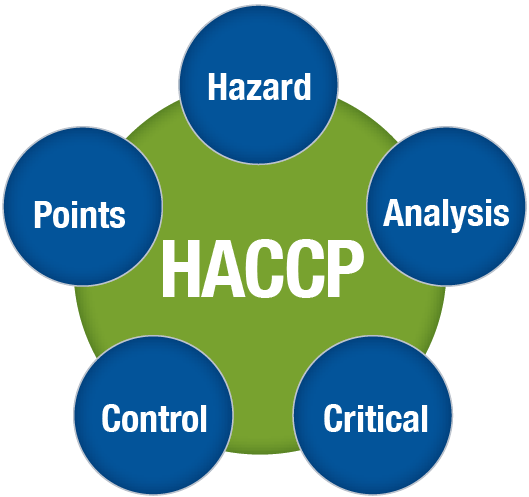About HACCP
- HACCP (Hazard Analysis Critical Control Point) is the systematic preventative approach to food safety.
- It addresses physical, chemical, and biological hazards as a means of prevention rather than finished product inspection.
- This approach has significant benefits to organizations operating within the food supply chain as it enables them to determine key controls over processes and concentrate resources on activities that are critical to ensuring safe food.

HACCP Principles
HACCP is a systematic approach to the identification, evaluation, and control of food safety hazards based on the following seven principles:
Principle 1: Conduct a hazard analysis.
Principle 2: Determine the critical control points (CCPs).
Principle 3: Establish critical limits.
Principle 4: Establish monitoring procedures.
Principle 5: Establish corrective actions.
Principle 6: Establish verification procedures.
Principle 7: Establish record-keeping and documentation procedures.



